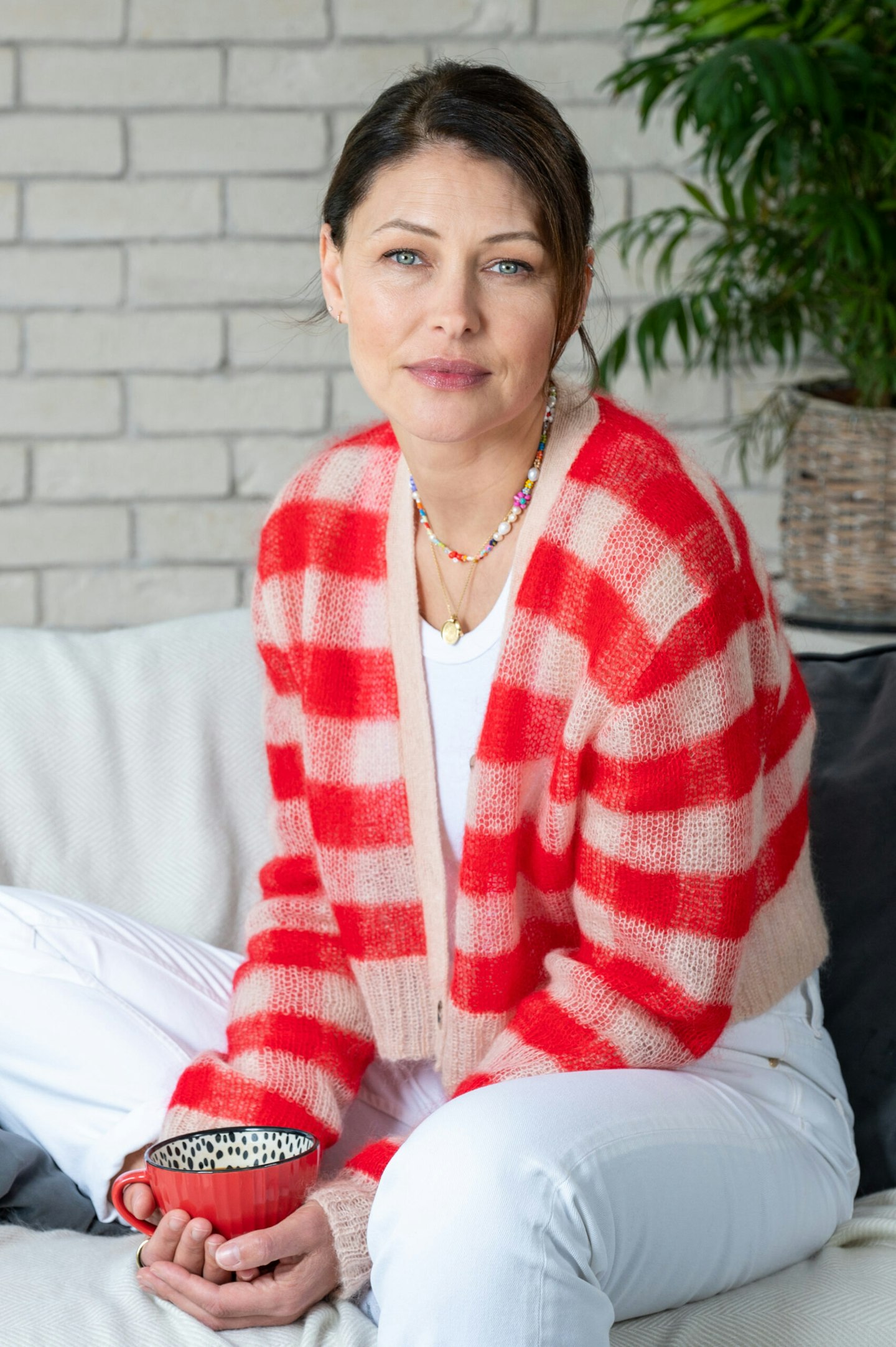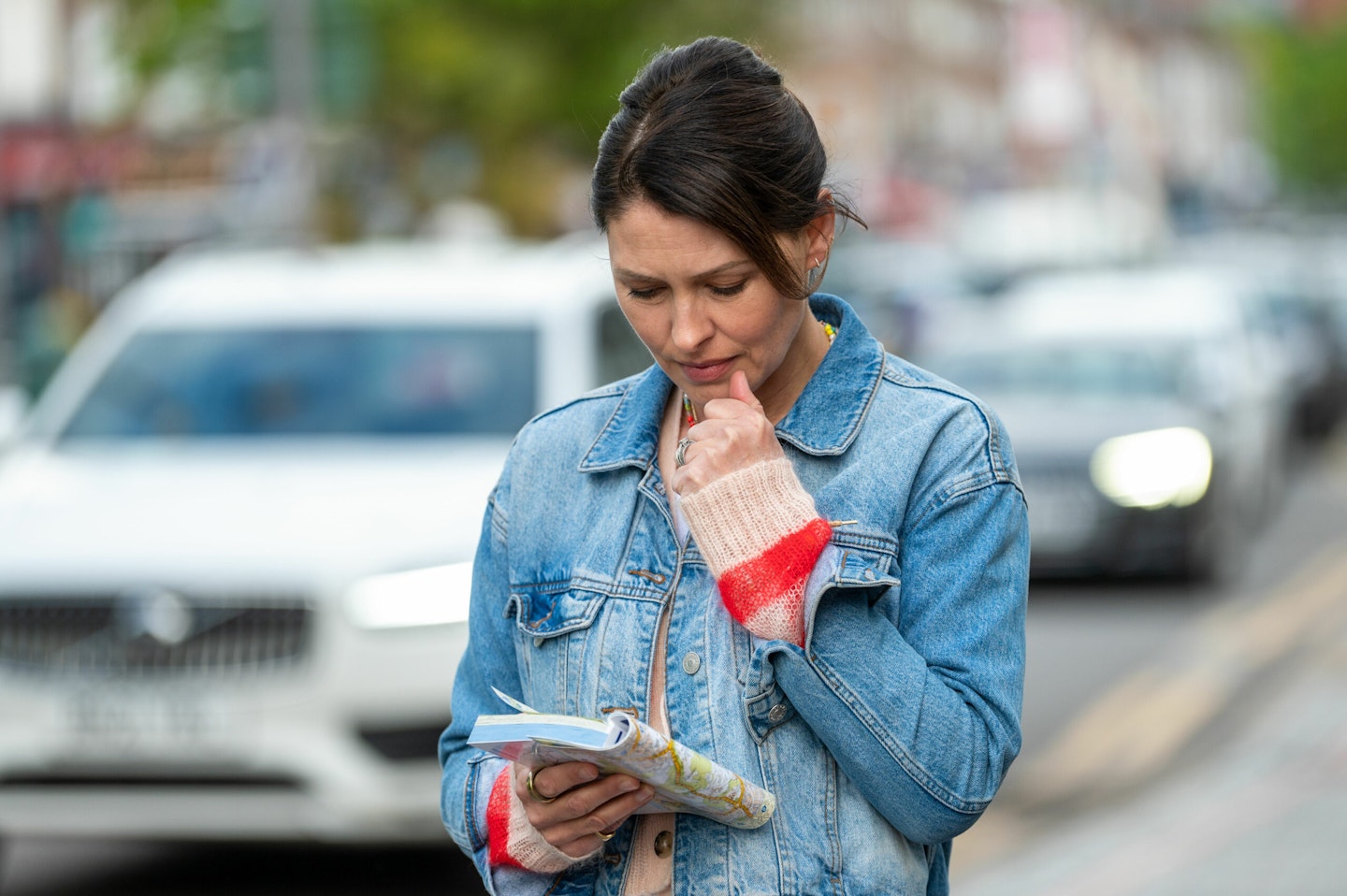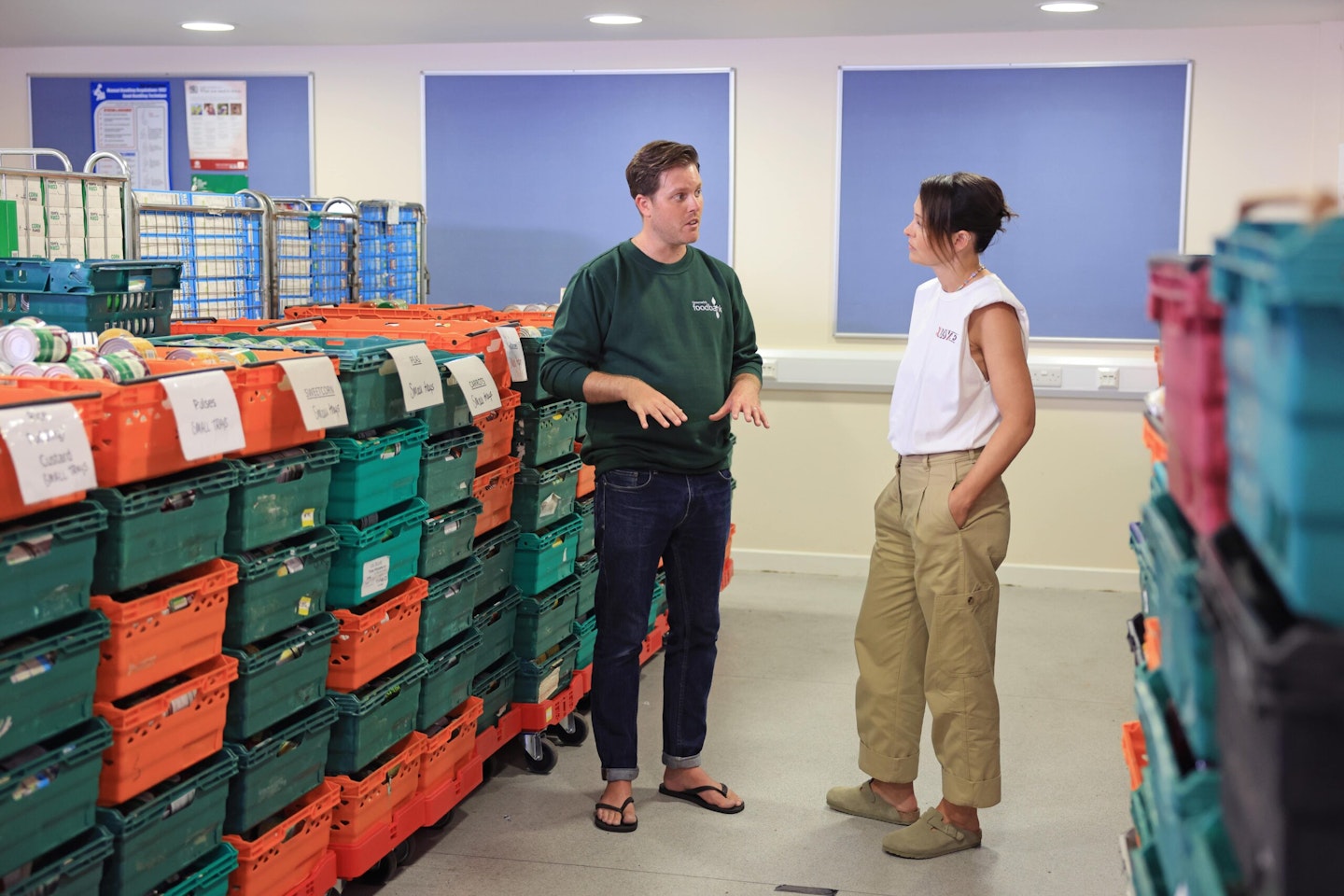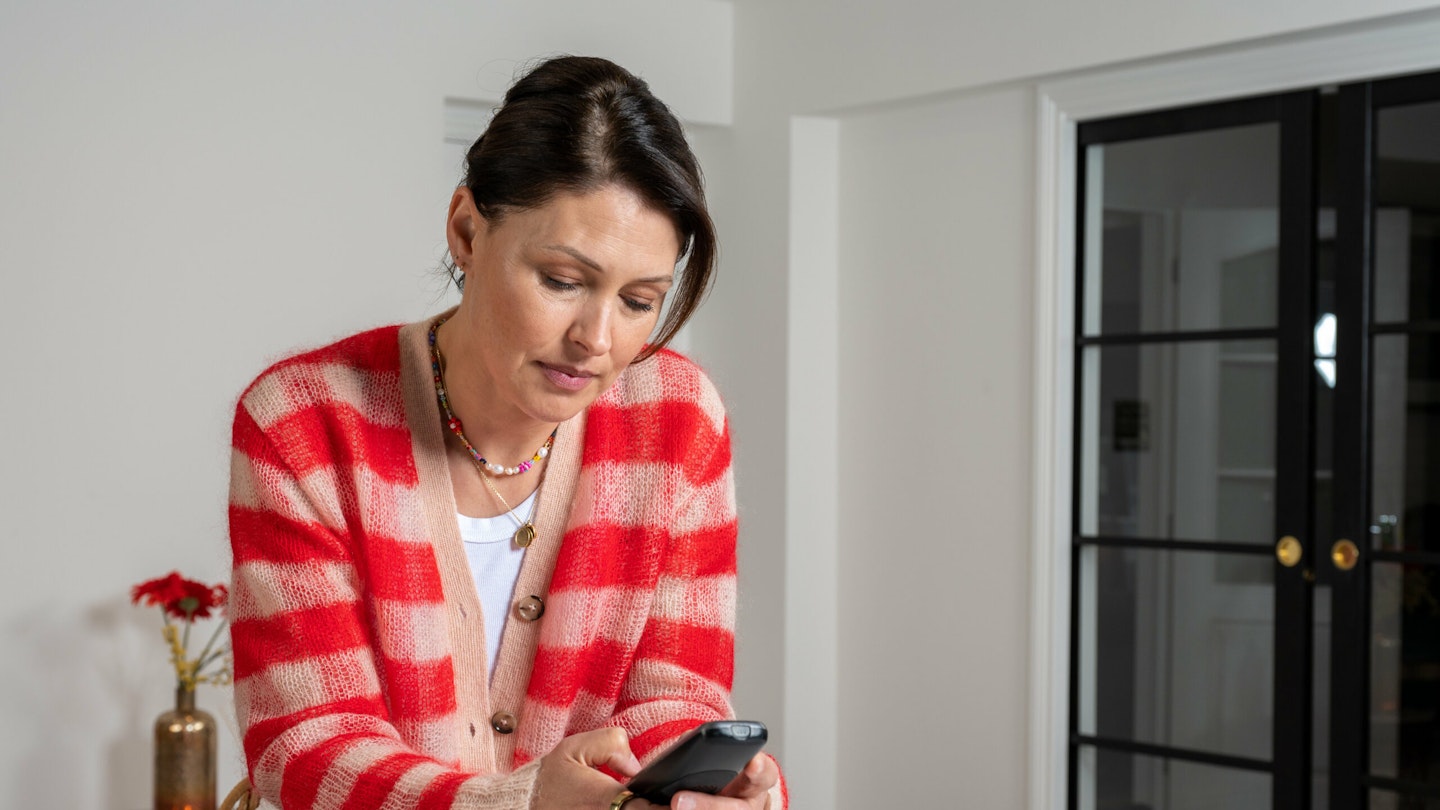For many of us, picking up our phone and booking an appointment is a part of everyday life that we don’t think twice about – but for many, that’s far from reality. Now, Emma Willis has teamed up with Vodafone to raise awareness around the digital divide in their three part docu-series, Disconnected.
Through their everyone.connected campaign, Vodafone aims to tackle the 'digital divide', a term that refers to the ‘gap between people with internet access and people without, referring to unequal access to connectivity, digital skills and technologies in society.’ In research conducted as part of the campaign, it was found that Brits complete at least 90 tasks online daily – with things such as banking taking an extra 1.5 hours on average without the help of a smartphone.
But whilst Brits on average are sending 270 text messages every month, there’s still over 1.7 million households in the UK who live day to day without having access to digital technology. And it's a fact that the former Big Brother presenter says is all to often forgotten.

‘A lot of us are fortunate enough to have data,’ says Emma, ‘And we all take it for granted, don’t we? I suppose we’re quite blasé to the fact that everyone’s connected and it’s the world we live in now. But actually, there are a phenomenal amount of people that are not. As every month passes, the world become more and more based on connectivity, and life is made quicker and easier. There’s definitely parts of being connected that I don’t care for, but to get through life, book doctors appointments, pay bills, even book a haircut – everything is online. If you don’t have that connection, it’s like living in a different time.’
Over the three-part docuseries, Vodafone challenge Emma to live one day without her devices – cutting her off from the Google maps and endless Whatsapps that keep so many of us going throughout the day.
‘I was quite up for the challenge,’ says Emma. ‘When they said they wanted me to go a full day without devices and try to complete certain tasks, I was quite intrigued.’
But, as Emma quickly found, even attempting to pay a bill would prove challenging without the ease of a smart phone.
‘What quickly transpired was that I was just constantly frustrated,' shares Emma. 'I call my husband Matt multiple times a day, I text my kids, I speak to my sisters, I check in on my mum and dad... but doing this challenge, I couldn’t just send a text. They gave me a landline, but the only person I could call was Matt because he’s the only one whose number I knew! I was constantly wondering what they were doing or if they needed anything. For me it was only 14 hours, but to have that frustration every week of every month, you must just feel like you’re being left behind. It felt incredibly isolating.'
Throughout their research, Vodafone have discovered that the digital divide is affecting women far more than men. In one statistic, they report that women interact with their friends and family more than their male counterparts – with 53% of women stating that one of their most important activities is communicating with their loved ones, compared to just 37% of men.
Married to Busted star Matt Willis and mum to three children, the desire to have your loved ones only a voice note away is a dynamic Emma notices in her day to day.
‘I certainly see in my own house that I very much communicate on my phone more than Matt does. I suppose maybe it’s because, as women, we talk more,' says Emma. 'We’re just better talkers, whether that’s just to have a simple little natter or to get something off our chests. Imagine if you didn’t have that connection, if your family was in another country and you couldn’t get hold of them. You’re totally cut off.’
'We all know what it's like to be a woman out at night - the fear, the worry, the paranoia.'
In one episode, Emma is challenged to find her way to her work meeting without her smartphone. Filmed in the daytime, the presenter admits she had no qualms approaching passers by for some much-needed directions. But had the sun gone down and the street lamps switched on, it would be an entirely different story…
‘I started modelling in the 90s, so I’m really good with directions. Matt says I’ve got an inbuilt Sat Nav in my head,’ laughs Emma. ‘I’m brilliant around London because I’ve walked those streets for 10 years, but put me in an area that I don’t know, and I’m not sure where to begin. Usually you would just pull our your phone and put it in Maps, but without that connectivity, you can’t do that either.’
Just like that, the digital divide becomes far more than struggling to book a hair appointment online or sending an email to your doctor. For many people – and women especially – the digital divide can lead to dangerous situations.
‘As much as kind of feeling isolated from my people throughout the day, that was the one things that I really thought about a lot. What do you do at night time? Even when we are connected, we all know what it’s like to be a woman out at night – the fear, the worry, the paranoia. God, I wish that didn’t exist – but it does!’ Emma shares.
‘Often the one safety net you have is your phone. You don’t feel safe or you need to get home quick, so you pull out your phone and call a taxi. What do you do if you haven’t got that? It does play on your mind.’

Explaining how the digital divide can affect anyone, Emma says ‘It’s the unknown. Just because you’re alright at the minute doesn’t mean it’s always going to be that way. I mean, who would have imagined COVID? The digital divide can happen, and it’s not just the older generation not having the skills to use devices.’

‘With the cost of living crisis, everything is more expensive. People can barely afford to go and do their weekly shop, let alone pay for line rentals and phone bills. The digital divide can happen to anyone, at any point, over any age group, because it affects your life across the board.’
Vodafone’s new three-part mini docu-series, Disconnected, is part of its everyone.connected initiative, which sheds light on the realities of being on the wrong side of the digital divide. The series was created as part of Vodafone’s ongoing everyone.connected campaign, which is committed to helping 4 million people and businesses cross the digital divide by the end of 2025
